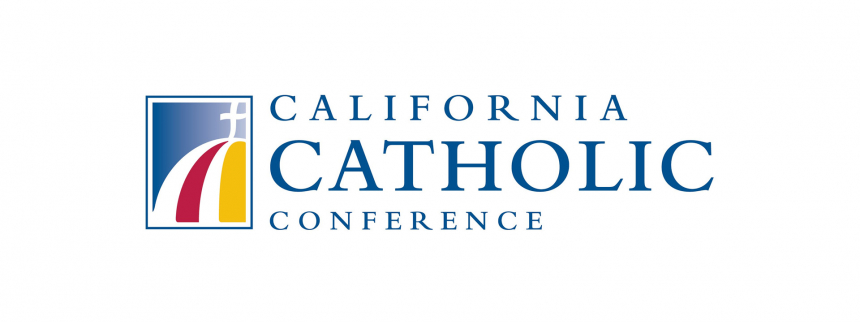
The California Catholic Conference[i] affirms that the imminent Pfizer and Moderna COVID-19 vaccines are morally acceptable and commit to working closely with Catholic health care ministries and Catholic Charities to:
- Promote and encourage COVID-19 vaccinations in collaboration with state and local governments and other entities;
- Advocate on behalf of vulnerable populations to ensure that they have access to safe and effective COVID-19 vaccines; and,
- Provide regular and accurate information to parishioners and the community in support of morally acceptable, safe and effective COVID-19 vaccines.
Life has changed this year in ways few of us could have imagined. The COVID-19 pandemic has brought loss of life and livelihood to every community, rich and poor. We mourn for those who have died and for their families, and we offer our prayers and assistance to those struggling with loss of businesses, unemployment, loneliness, anxiety and other traumas brought on by this calamity.
Fortunately, two COVID-19 vaccine candidates will likely be granted emergency use authorization from the U.S. Food and Drug Administration (FDA) before the end of the year, and one or more vaccines will likely become widely available in 2021. While the vaccines are still under review, they have been extensively studied in rigorous clinical trials and early safety and effectiveness findings look promising.
The chairs of the U.S. Catholic Conference of Bishops’ Committees on Doctrine and Pro-Life Activities, the Catholic Health Association and other respected moral theologians have found the early vaccine candidates to be morally acceptable.
We welcome this news and look forward to the distribution of safe and effective vaccines with a sense of relief while recognizing the formidable logistical challenges that lay ahead for vaccine developers, health care providers, governments and others.
All the arch/dioceses in California together with Catholic health care ministries and Catholic Charities support the eradication of disease that disrupts human life. The Pfizer and Moderna vaccines promote health in face of a devastating pandemic that no one expected. We want to reemphasize that the origins of the vaccines are morally acceptable from a Catholic perspective and their advancement fosters the common good. We also affirm that those who are most vulnerable must have a privileged place in their distribution and allocation.
Therefore, California dioceses, various state and local outreach ministries[ii], Catholic health care systems and hospitals [iii] offer to assist with this massive undertaking in the following ways:
The California Catholic Conference, Catholic health care systems and Catholic Charities commit to promoting and encouraging COVID-19 vaccinations in the communities we serve.
Dioceses have a special relationship with Catholic health care providers and will work closely with them and rely heavily on their guidance. Many also already work with other providers, such as in bringing health care to farmworkers. These collaborations will be utilized as appropriate and new ones established when they can be helpful. The dioceses and the Catholic health systems will also continue to work with the California governor’s office, the Department of Public Health, and county and local public health agencies.[iv]
Our collaboration commits to strong outreach to vulnerable populations such as farmworkers, undocumented individuals and low-wage earners who seek guidance and assistance from our ministries. Much of this work will focus on promoting or establishing, if necessary, safe locations for undocumented individuals and others who may not have regular access to health care, are unsure of the motives behind the vaccination or are not certain where to turn for help.
We commit to providing clear information to parishioners and communities in support of safe and effective vaccines. At a time when misinformation clouds our public discourse it is critical that we focus our efforts on clear, culturally appropriate and effective messaging.
It is also vitally important that we work together in a spirit of solidarity and cooperation. As Pope Francis recently expressed:
At a time when everything seems to disintegrate and lose consistency, it is good for us to appeal to the “solidity” born of the consciousness that we are responsible for the fragility of others as we strive to build a common future. Solidarity finds concrete expression in service, which can take a variety of forms in an effort to care for others. And service in great part means “caring for vulnerability, for the vulnerable members of our families, our society, our people”… Service always looks to their faces, touches their flesh, senses their closeness and even, in some cases, ‘suffers’ that closeness and tries to help them. Service is never ideological, for we do not serve ideas, we serve people. [115]
Fratelli tutti, Pope Francis, 2020
Finally, we offer a special thanks to the health care professionals who have and will continue to care for the sick; to essential workers that enable society to continue functioning; for scientists and researchers who brought us to this moment; to teachers and parents struggling to educate children; to workers in ministries finding innovative ways to bring spiritual and corporal resources to congregations; and to everyone who has helped carry the burden of others during this pandemic.
We pray for them as we pray for the world. We still have much work to do, but we now have hope and a path forward rooted in the healing ministry of Jesus Christ. We place our trust and confidence in the providence of God.
[i] Archdioceses of Los Angeles and San Francisco; Dioceses of Fresno, Monterey, Oakland, Orange, Sacramento, San Bernardino, San Diego, San Jose, Santa Rosa and Stockton
[ii] Catholic Charities of California and the local Catholic Charities agencies in each of the Collaborating arch/dioceses
[iii] Dignity Health/CommonSpirit, Providence St. Joseph Health
[iv] For instance, Catholic Charities of California is already working with the state through membership on the California Department of Public Health’s Vaccination Advisory Committee.

